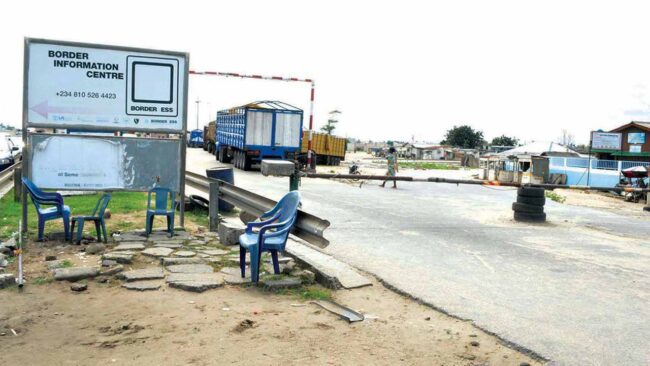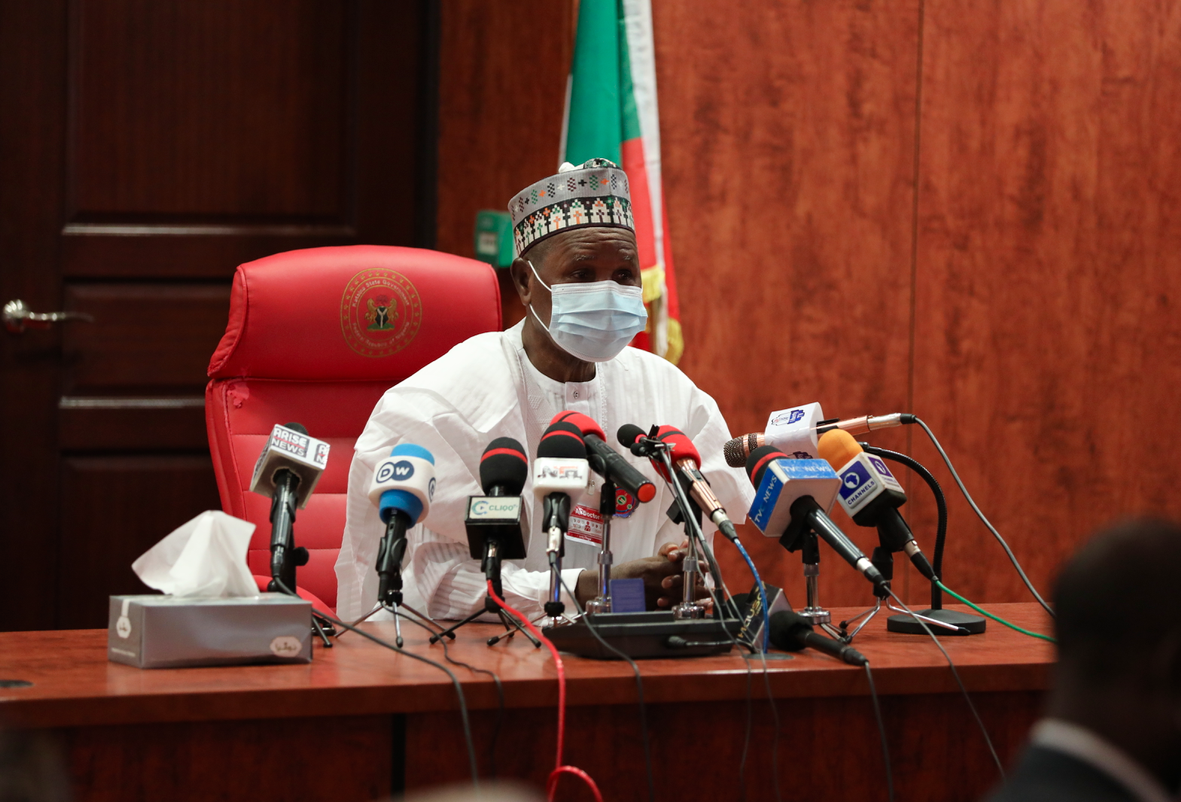The Nigerian Association of Chamber of Commerce, Industry, Mines, and Agriculture (NACCIMA) says the federal government’s decision to reopen land borders is a strategic move as the country strives to exit recession by first quarter of 2021 (Q1 2021).
Hajiya Saratu Aliyu, national president of NACCIMA, disclosed this in a statement on Thursday.
The federal government on Wednesday ordered the immediate reopening of four land borders across Nigeria, which are: Seme (South-West), Ilela (North-West), Maigatari (North-West) and Mfum (South-South).
NACCIMA said it had on several occasions called for reopening of land borders for numerous reasons, including the negative impact of their closure on Nigeria’s economy since August 2019.
Advertisement
“The decision by the federal government to reopen four of our land borders at Ilela, Maitagari, Seme and Mfum, with immediate effect is a most welcome development and one of the important strategic moves, in our quest to exit recession in first quarter of 2021,” the statement read.
“We are therefore delighted that president Muhammadu Buhari has heeded the call and approved the recommendations to open the borders.”
NACCIMA also said this decision will help Nigeria retain its position as a major economic player in the West African sub-region, adding that it is a signal of the country’s readiness to trade under African Continental Free Trade Area (AfCFTA).
Advertisement
“It is a positive decision because trade across our land borders is an important component of our cross border trade which can help boost operations of our small and medium enterprises (SMEs) engaged in export of non-oil products through the land borders.
“This move is also a welcome strategic move in context of our ratification of the AfCFTA. Because it is a clear signal of our readiness to effectively trade under the agreement.”
NACCIMA hoped that by next year, the federal government will fully reopen all land borders as it will rebuild and reposition Nigeria’s economy which was affected by COVID-19 pandemic and other economic challenges.
Advertisement
Add a comment






